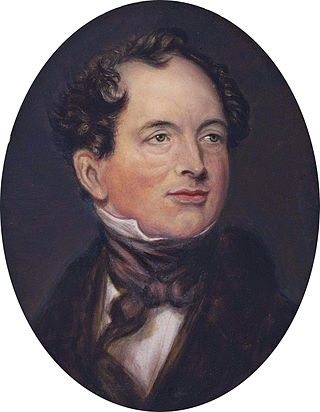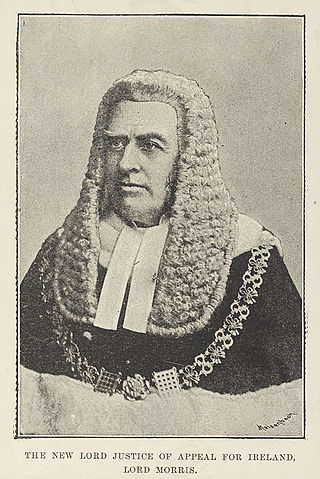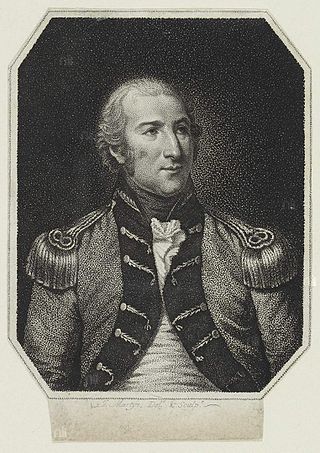Related Research Articles
The Whigs were a political party in the Parliaments of England, Scotland, Ireland, Great Britain and the United Kingdom. Between the 1680s and the 1850s, the Whigs contested power with their rivals, the Tories. The Whigs merged into the Liberal Party with the Peelites and Radicals in the 1850s. Many Whigs left the Liberal Party in 1886 to form the Liberal Unionist Party, which merged into the Conservative Party in 1912.

Thomas Moore, also known as Tom Moore, was an Irish writer, poet, and lyricist celebrated for his Irish Melodies. His setting of English-language verse to old Irish tunes marked the transition in popular Irish culture from Irish to English. Politically, Moore was recognised in England as a press, or "squib", writer for the aristocratic Whigs; in Ireland he was accounted a Catholic patriot.

Frederick John Robinson, 1st Earl of Ripon,, styled The Honourable F. J. Robinson until 1827 and known between 1827 and 1833 as The Viscount Goderich, the name by which he is best known to history, was a British politician who served as Prime Minister of the United Kingdom from 1827 to 1828.

William Vesey-FitzGerald, 2nd Baron FitzGerald and Vesey, was an Anglo-Irish statesman. A Tory, he served in the governments of Lord Wellington and Robert Peel, but is best known for his defeat in the 1828 Clare by-election, hastening Catholic Emancipation across Britain and Ireland.

The Leader of His Majesty's Most Loyal Opposition, more commonly referred to as the Leader of the Opposition, is the person who leads the Official Opposition in the United Kingdom. The position is seen as the shadow head of government of the United Kingdom and thus the shadow prime minister of the United Kingdom.
William Talbot, 1st Earl Talbot, PC, styled as Lord Talbot from 1737 to 1761, was an English peer and Whig politician. Talbot was a notable figure among opposition Whig politicians during the reign of King George II before later coming to Court during the reign of his grandson, taking the office of Lord Steward of the Household.

The Attorney-General for Ireland was an Irish and then United Kingdom government office-holder. He was senior in rank to the Solicitor-General for Ireland: both advised the Crown on Irish legal matters. With the establishment of the Irish Free State in 1922, the duties of the Attorney-General and Solicitor-General for Ireland were taken over by the Attorney General of Ireland. The office of Solicitor-General for Ireland was abolished at the same time for reasons of economy. This led to repeated complaints from the first Attorney General of Ireland, Hugh Kennedy, about the "immense volume of work" which he was now forced to deal with single-handedly.

The Roman Catholic Relief Act 1829, also known as the Catholic Emancipation Act 1829, removed the sacramental tests that barred Roman Catholics in the United Kingdom from Parliament and from higher offices of the judiciary and state. It was the culmination of a fifty-year process of Catholic emancipation which had offered Catholics successive measures of "relief" from the civil and political disabilities imposed by Penal Laws in both Great Britain and in Ireland in the seventeenth, and early eighteenth, centuries.

The 1830 United Kingdom general election was triggered by the death of King George IV and produced the first parliament of the reign of his successor, King William IV. Fought in the aftermath of the Swing Riots, it saw electoral reform become a major election issue. Polling took place in July and August and the Tories won a plurality over the Whigs, but division among Tory MPs allowed Earl Grey to form an effective government and take the question of electoral reform to the country the following year.

The 1826 United Kingdom general election saw the Tories under the Earl of Liverpool win a substantial and increased majority over the Whigs. In Ireland, liberal Protestant candidates favouring Catholic emancipation, backed by the Catholic Association, achieved significant gains.

The 1802 United Kingdom general election was the election to the House of Commons of the second Parliament of the United Kingdom. It was the first to be held after the Union of Great Britain and Ireland. The first Parliament had been composed of members of the former Parliaments of the Kingdom of Great Britain and the Kingdom of Ireland.

George Ogle was an Irish Tory politician.
Downpatrick was a United Kingdom Parliament constituency in Ireland, returning one MP. It was an original constituency represented in Parliament when the Union of Great Britain and Ireland took effect on 1 January 1801.

In the first Parliament to be held after the Union of Great Britain and Ireland on 1 January 1801, the first House of Commons of the United Kingdom was composed of all 558 members of the former Parliament of Great Britain and 100 of the members of the House of Commons of Ireland.
The Ultra-Tories were an Anglican faction of British and Irish politics that appeared in the 1820s in opposition to Catholic emancipation. The faction was later called the "extreme right-wing" of British and Irish politics.

Henry Charles Sirr was an Anglo-Irish military officer, policeman, merchant and art collector. He played a prominent role in suppressing the Irish Rebellion of 1798, which included personally killing Society of United Irishmen leader Lord Edward FitzGerald, who Sirr alleged had been resisting arrest.

Arthur Wolfe, 1st Viscount Kilwarden was an Anglo-Irish peer, politician and judge, who held office as Lord Chief Justice of Ireland. He was killed during the Irish rebellion of 1803.
Robert James Tennent was an Irish Whig politician.
Charles Tottenham was an Irish Conservative and Tory politician.
John Cliffe (1661–1728) was an Irish barrister, landowner and politician. He sat in the Irish House of Commons for many years, where he was often called on to speak for the Government, and held the office of Serjeant-at-law (Ireland).
References
- 1 2 3 4 Stephen Farrell, MOORE, George (b. 1778), of 14 Hume Street, Dublin in The History of Parliament: the House of Commons 1820-1832 (2009).
- ↑ "Bellevue House and Demesne, Co. Wexford". Ask about Ireland. Retrieved 18 May 2024.
- ↑ Charles Francis, James Moore (1807–1895) in Australian Dictionary of Biography (1974).
- ↑ Warren E. Limbrick, Lorenzo Moore in Dictionary of New Zealand Biography (1993, updated 2012).